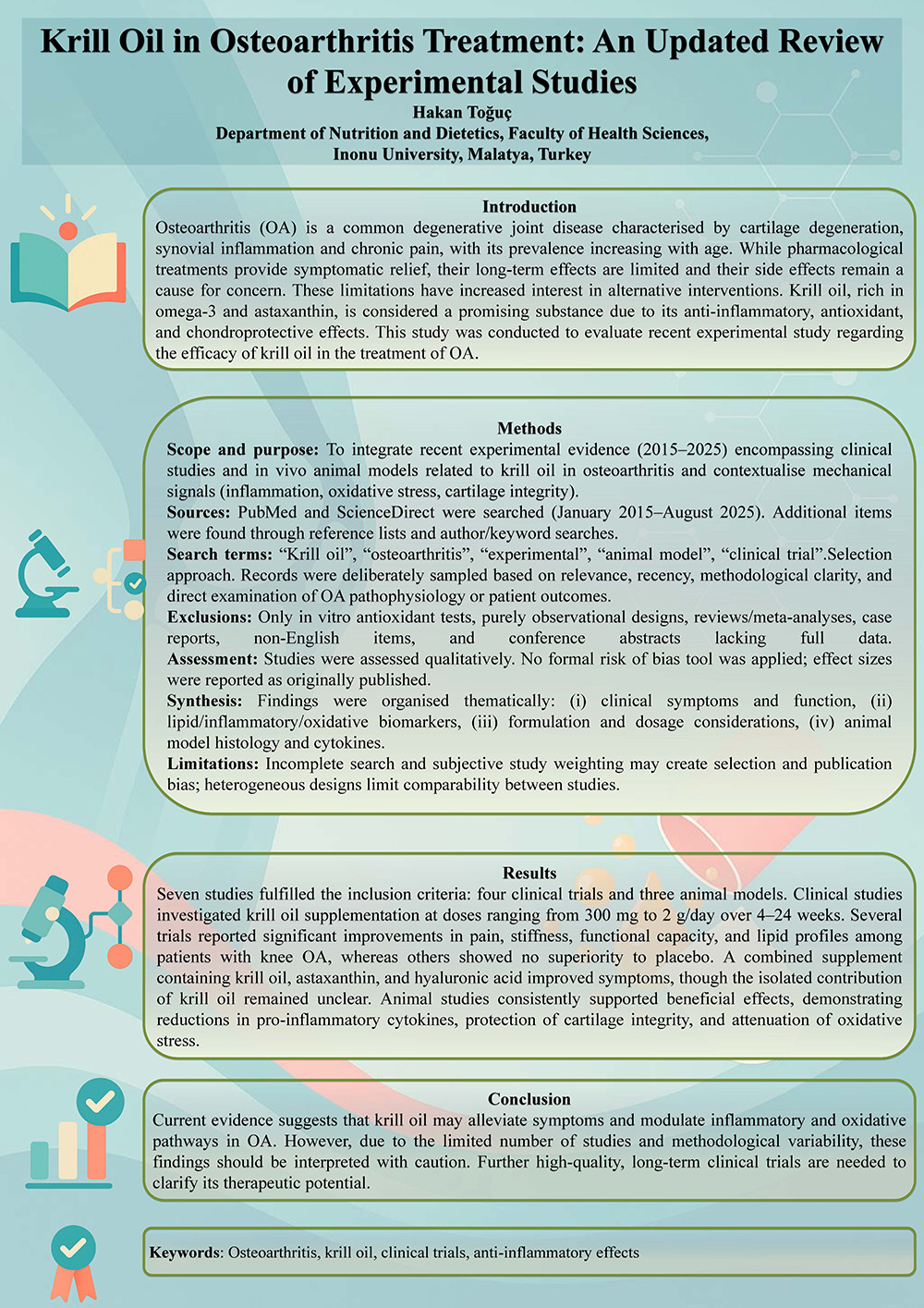Introduction: Osteoarthritis (OA) is a common degenerative joint disease characterised by cartilage degeneration, synovial inflammation and chronic pain, with its prevalence increasing with age. While pharmacological treatments provide symptomatic relief, their long-term effects are limited and their side effects remain a cause for concern. These limitations have increased interest in alternative interventions. Krill oil, rich in omega-3 and astaxanthin, is considered a promising substance due to its anti-inflammatory, antioxidant, and chondroprotective effects. This study was conducted to evaluate recent experimental study regarding the efficacy of krill oil in the treatment of OA.
Methods: A systematic search of PubMed and ScienceDirect databases identified experimental studies published between 2015 and 2025. Search terms included “krill oil, osteoarthritis, experimental, animal model, clinical trial.” Eligible studies directly examined the effects of krill oil on OA pathophysiology or clinical outcomes. In vitro antioxidant assays, observational studies, reviews, meta-analyses, case reports, and non-English publications were excluded.
Results: Seven studies fulfilled the inclusion criteria: four clinical trials and three animal models. Clinical studies investigated krill oil supplementation at doses ranging from 300 mg to 2 g/day over 4–24 weeks. Several trials reported significant improvements in pain, stiffness, functional capacity, and lipid profiles among patients with knee OA, whereas others showed no superiority to placebo. A combined supplement containing krill oil, astaxanthin, and hyaluronic acid improved symptoms, though the isolated contribution of krill oil remained unclear. Animal studies consistently supported beneficial effects, demonstrating reductions in pro-inflammatory cytokines, protection of cartilage integrity, and attenuation of oxidative stress.
Conclusion: Current evidence suggests that krill oil may alleviate symptoms and modulate inflammatory and oxidative pathways in OA. However, due to the limited number of studies and methodological variability, these findings should be interpreted with caution. Further high-quality, long-term clinical trials are needed to clarify its therapeutic potential.
Keywords: Osteoarthritis, krill oil, clinical trials, anti-inflammatory effects
